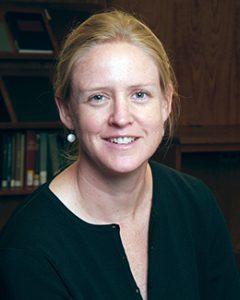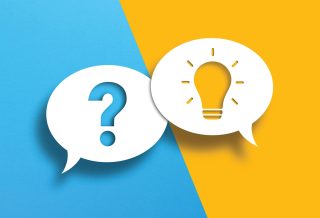FOCUS
Toolbox for SEL
Coaching builds teachers' social and emotional strategies
By Laura Stickle, Rebecca Bailey, Gretchen Brion-Meisels and Stephanie Jones
Categories: Coaching, Social & emotional learningDecember 2019
Vol. 40, No. 6
Read the remaining content with membership access. Join or log in below to continue.
Sed ut perspiciatis unde omnis iste natus error sit voluptatem accusantium doloremque laudantium, totam rem aperiam, eaque ipsa quae ab illo inventore veritatis et quasi architecto beatae vitae dicta sunt explicabo. Nemo enim ipsam voluptatem quia voluptas sit aspernatur aut odit aut fugit, sed quia consequuntur magni dolores eos qui ratione voluptatem sequi nesciunt. Neque porro quisquam est, qui dolorem ipsum quia dolor sit amet, consectetur, adipisci velit, sed quia non numquam eius modi tempora incidunt ut labore et dolore magnam aliquam quaerat voluptatem.
References
Ashworth, E., Demkowicz, O., Lendrum, A., & Frearson, K. (2018). Coaching models of school-based prevention and promotion programmes: A qualitative exploration of UK teachers’ perceptions. School Mental Health, 10, 287-300.
Bridgeland, J., Bruce, M., & Hariharan, A. (2013). The missing piece: A national survey on how social and emotional learning can empower children and transform schools. Washington, DC: Civic Enterprises.
DePaoli, J.L., Atwell, M.N., & Bridgeland, J. (2017). Ready to lead: A national principal survey on how social and emotional learning can prepare children and transform schools. Washington, DC: Civic Enterprises.
DeWeese, A.R., Jennings, P.A., Brown, J.L., Doyle, S.L., Davis, R.T., Rasheed, D.S., … Greenberg, M.T. (2017). Coding semistructured interviews: Examining coaching calls within the CARE for Teachers Program. SAGE Research Methods Cases Part 2. Thousand Oaks, CA: Sage.
Durlak, J.A., Weissberg, R.P., Dymnicki, A.B., Taylor, R.D., & Schellinger, K. (2011). The impact of enhancing students’ social and emotional learning: A meta-analysis of school-based universal interventions. Child Development, 82, 405-432.
Jones, S.M., Bailey, R., Brush, K., & Kahn, J. (2017). Kernels of practice for SEL: Low-cost, low-burden strategies. New York, NY: The Wallace Foundation.
Mahoney, J.L., Durlak, J.A., & Weissberg, R.P. (2018). An update on social and emotional learning outcome research. Phi Delta Kappan, 100(4), 18-23.
Patti, J., Holzer, A.A., Brackett, M.A., & Stern, R. (2015). Twenty-first-century professional development for educators: A coaching approach grounded in emotional intelligence. Coaching: An International Journal of Theory, Research and Practice, 8(2), 96-119.
Reinke, W.M., Stormont, M., Herman, K.C., Puri, R., & Goel, N. (2011). Supporting children’s mental health in schools: Teacher perceptions of needs, roles, and barriers. School Psychology Quarterly, 26(1), 1-13.
Schonert-Reichl, K.A., Kitil, J., LeRose, M., Sipl, M., Sweiss, L., Teja, Z., & Sauve, J. (2016). Social and emotional learning and teacher education: What do we know and where do we go from here? White paper prepared for HopeLab, Redwood City, CA.
Sklad, M., Diekstra, R., Ritter, M., Ben, J., & Gravesteijn, C. (2012). Effectiveness of school-based universal social, emotional, and behavioral programs: Do they enhance students’ development in the area of skill, behavior, and adjustment? Psychology in the Schools, 49(9), 892-909.
Vasely, A.K., Saklofske, D.H., & Nortstokke, D.W. (2014). EI training and pre-service teacher wellbeing. Personality and Individual Differences, 65, 81-85.
Walter, H.J., Gouze, K., & Lim, K.G. (2006). Teachers’ beliefs about mental health needs in inner city elementary schools. Journal of the American Academy of Child & Adolescent Psychiatry, 45(1), 61-68.
Wehby, J., Maggin, D., Partin, T., & Robertson, R. (2011). The impact of working alliance, social validity, and teacher burnout on implementation fidelity of the good behavior game. School Mental Health, 4, 22-33.
Categories: Coaching, Social & emotional learning
Recent Issues
LEARNING DESIGNS
February 2025
How we learn influences what we learn. This issue shares essential...
BUILDING BRIDGES
December 2024
Students benefit when educators bridge the continuum of professional...
CURRICULUM-BASED PROFESSIONAL LEARNING
October 2024
High-quality curriculum requires skilled educators to put it into...
LEARNING TO PIVOT
August 2024
Sometimes new information and situations call for major change. This issue...














